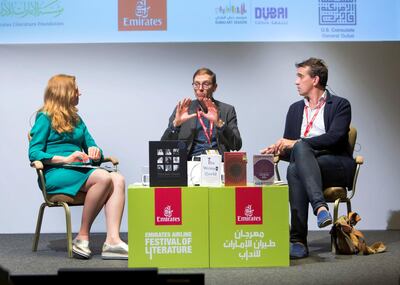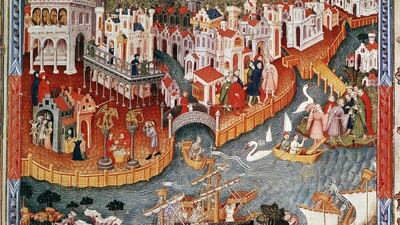Most of our parents would probably say we would be far better off if we could use the lessons they learned the hard way – lessons that would have saved them time, effort and maybe even heartbreak had they learnt them sooner. But did they live life based on the learnings of their own parents’ mistakes before us? Do we learn our lessons from history as individuals, as nations, as mankind?
As human beings, we go in cycles from one milestone to the next. Starting over is at the core of our existence. Even the 50 to 75 trillion cells that make up a human body are replaced with new cells every seven to 10 years.
There is no denying lessons from the past have advanced our species, but every now and then, and it may be the renewed cells talking, a voice inside us responds to a familiar risk with ‘it could be different this time’. It might be the optimist in us talking but we can sometimes convince ourselves that under different circumstances even an identical situation could have a different outcome.
And is it wrong to want to make our own mistakes, even if those before us have walked the same path and failed? Is it better to live avoiding situations and scenarios that have been tested and failed?
It is not only the lessons learnt from the mistakes of others that are in question. Spanish philosopher and novelist George Santayana wrote: "Those who cannot remember their past are condemned to repeat their mistakes". We are both cursed and blessed with forgetfulness, and sometimes we forget the pain caused by our own past mistakes which takes us right back into a situation where history repeats itself. Nostalgia is the other human trait that can be terribly deceiving. Looking at the past with a romanticised idea of mostly the good while ignoring the bad can cause us to fall back into the same traps repeatedly.
But how do we view history in a more distant and holistic sense? In his book The Silk Roads, Peter Frankopan talks about looking at history, "not as a series of periods and regions that are isolated and distinct, but to see the rhythms of history in which the world has been connected for millennia as being part of a bigger, inclusive global past". Do we therefore learn from our global past or consider that the rhythms of history affect only others and never us? Frankopan says that his work would have been equally relevant if he had written it 25 years ago because winds of change are always blowing on the silk roads, the networks that are the world's nervous system. Can we assume they always will be relevant in the future?

It is not only historians who reveal how history affects our present. Some of the most poignant and mesmerising works of fiction have risen from the bones of our collective history. The stories of Toni Morrison, James Baldwin and more recently Tayari Jones are only fiction in the details; they tell the truth better than any work of non-fiction could.
For instance, Fatima Bhutto's stunning novel The Runaways, about what drives young people to join terror outfits, gives us a window into why people make unthinkable choices. The realities Bhutto writes about are best explored through fiction. They can be read as a stark warning: ignore at your peril the lessons of history.
Indeed these lessons are all around us if we care to look and acknowledge them. But simply observing them is not enough to stop the endless repetition. We need to be brave when we look at the facts and we need to be open to different perspectives. Only then can we hope to break the cycle.
But the future is no longer in the hands of humans alone. While we are busy analysing the elements that lead us to repeating mistakes, the world of artificial intelligence will be running full steam with no memory loss and no rosy pictures of a nostalgic past. We are continuously developing technological forces that are changing the face of the earth. The artificial intelligence beast will soon become too intelligent, too embedded in all touchpoints of human life that it might start to become impossible for us to control. While learning from our past has gotten us to this point, the question to be asked is: just because we can visit unimaginable places, does it mean we should?
Historian Justin Marozzi tells us that "without cities there is no such thing as a civilisation. It is within cities, rather than among deserts, wildernesses, steppes, mountains and jungles, however beautiful and spirit-soaring, that humankind has realised its greatest potential: excelling in the arts and sciences, exploring the human condition and leaving an indelible literary legacy". If so, then why is there a growing popularity for nature retreats, eating fewer animal products, making sustainable lifestyle choices and focusing on spiritual well-being? It appears as though humankind's greatest potential has also come with the greatest of consequences, which takes me to the final question: who is narrating our history?
Ahlam Bolooki is festival director for Emirates Airline Festival of Literature


